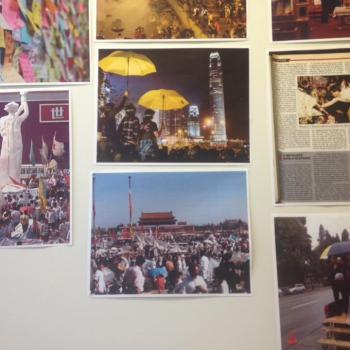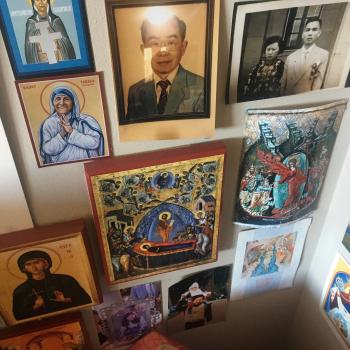Consider this post a placeholder.
I am writing this post simply to signal that we need to pay attention. Taiwan matters. Hong Kong matters.
This post is not an analysis of what is happening in either Taiwan or Hong Kong. The situation is developing far too rapidly for me to be able to give an opinion on where this is going.
I’m just saying: pay attention.
On 26 February 2014, the former editor of Ming Pao newspaper, Kevin Lau Chun-to, was brutally attacked by a knife-wielding assailant in Hong Kong. He survived, thanks to surgical work. This attack leads to protests about eroding press freedoms in Hong Kong.For those who don’t know:
- On 19 March 2014, students occupy the Legislative Yuan in Taiwan to protest a Taiwan-China trade liberalization pact that was ‘expedited.’ They are still there.
- On the same day, two news media executives are attacked by assailants wielding metal bars in Hong Kong.
- On 24 March 2014, students in Taiwan also occupy the Executive Yuan. This leads to the deployment of violent tactics by Taiwan’s police force authorized by the Executive Yuan president. The students have issued an email calling the police attacks unconstitutional, and there may be a bigger strike coming. The premier has in turn held a press conference saying that the Executive Yuan must be operational within 24 hours and that further strikes would be discouraged. Debate has now ensued about whose failure of democracy this is.
I have some thoughts on these matters, but I will wait for the situation to develop further.
Instead, I’ll pose my observation as a question. These seemingly insignificant happenings in Hong Kong and Taiwan matter because they beg the question: what does democracy in Greater China look like?
I won’t say more than that for now, except to point out that this question seems to circulating around the chat(ter)ing classes of Taiwan, Hong Kong, and the PRC. It’s generating wildly different answers depending on whom you ask. Somewhere embedded in that question is a inquiry into the significance of democratic elections. Somewhere in there is the question of market liberalization. And somewhere in there is the question of the legacy of the 1989 student movement in Beijing’s Tiananmen Square.
I have tentative thoughts on all of these, but as the situation develops, I’m staying open to learn and to be surprised. Instead of concluding with my own observations, then, I’ll end with a book recommendation.
I would say that now is a good time to (re)read Craig Calhoun’s 1994 classic, Neither Gods Nor Emperors: Students and the Struggle for Democracy in China. To be sure, Hongkonger and Taiwanese democratic activists have invoked the legacy of Tiananmen 1989 to bolster claims that state-sponsored violence against peacefully demonstrating students de-legitimizes the state. I would prefer for my recommendation not to be read as contributing to that conversation.
Instead of invoking the myth of Tiananmen 1989, I think we’d all be better served by asking what happened from April 15 – June 6, 1989, in Beijing. Calhoun’s book does that. It’s also a classic in studies of democratic publics. So now’s the time to re-read that. Along the way, these are some questions that we might ask:
- What similarities and differences does Calhoun’s central argument that the protests were ‘diffuse and contested, planning informal and rooted in custom’ have with the current situations in Taiwan and Hong Kong?
- How does Calhoun analyze post-1978 economic liberalization in China, and is that in any way related to the market-speak that surrounds the Hong Kong and Taiwan situations?
- How does Calhoun theorize democracy? What are the differing and contested notions of democracy at play on the ground right now in Taiwan and Hong Kong? To what extent do these various and clashing strands all draw from the 1980s student movement in China?
- How does Calhoun understand the politics of state-sponsored violence? What are the reasons for which violence is being committed in Taiwan and Hong Kong, and how do they converge and diverge from Tiananmen 1989?
I have my answers, and some may be surprising. But I’m waiting to be surprised myself, so I’m not going to say much yet, except to say that democracy doesn’t just mean one thing, violence is always reprehensible, and market liberalization is more contested that most want to think.
We ask these questions because Taiwan and Hong Kong matter. We pay attention. We stay critically engaged. And we remain level-headed because we are in fact deeply concerned.











